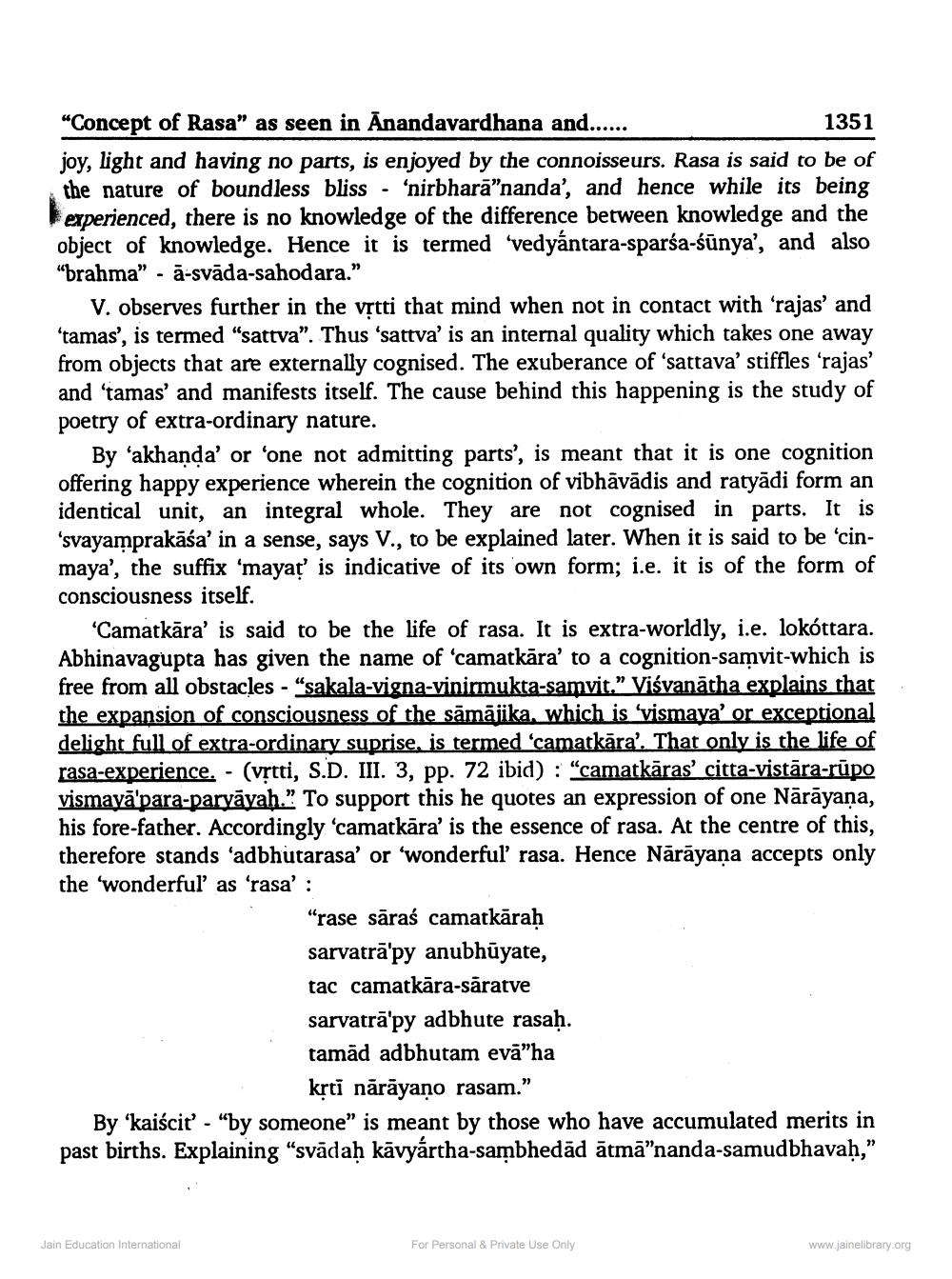________________
"Concept of Rasa" as seen in Anandavardhana and......
1351 joy, light and having no parts, is enjoyed by the connoisseurs. Rasa is said to be of the nature of boundless bliss - ‘nirbharā"nanda', and hence while its being experienced, there is no knowledge of the difference between knowledge and the object of knowledge. Hence it is termed 'vedyár -sparsa-śünya', and also "brahma" - ā-svāda-sahodara."
V. observes further in the vștti that mind when not in contact with 'rajas' and 'tamas', is termed "sattva". Thus 'sattva' is an internal quality which takes one away from objects that are externally cognised. The exuberance of 'sattava' stiffles 'rajas' and 'tamas' and manifests itself. The cause behind this happening is the study of poetry of extra-ordinary nature.
By ‘akhanda' or 'one not admitting parts', is meant that it is one cognition offering happy experience wherein the cognition of vibhāvādis and ratyādi form an identical unit, an integral whole. They are not cognised in parts. It is 'svayamprakāśa' in a sense, says V., to be explained later. When it is said to be 'cinmaya', the suffix 'mayat' is indicative of its own form; i.e. it is of the form of consciousness itself.
'Camatkāra' is said to be the life of rasa. It is extra-worldly, i.e. lokóttara. Abhinavagupta has given the name of 'camatkāra' to a cognition-samvit-which is free from all obstacles - "sakala-vigna-vinirmukta-samvit." Visvanātha explains that the expansion of consciousness of the sāmājika, which is 'vismaya' or exceptional delight full of extra-ordinary suprise, is termed 'camatkāra'. That only is the life of rasa-experience. - (vrtti, S.D. III. 3, pp. 72 ibid) : "camatkāras' citta-vistāra-rūpo
navā'para-parvāvah." To support this he quotes an expression of one Nārāyana, his fore-father. Accordingly 'camatkāra' is the essence of rasa. At the centre of this, therefore stands 'adbhutarasa' or 'wonderful rasa. Hence Nārāyana accepts only the 'wonderful as 'rasa' :
"rase sāras camatkārah sarvatrā'py anubhūyate, tac camatkāra-sāratve sarvatrā'py adbhute rasaḥ. tamäd adbhutam evā"ha
krti nārāyaṇo rasam." By ‘kaiścit' - "by someone" is meant by those who have accumulated merits in past births. Explaining “svādaḥ kāvyártha-sambhedad ātmā”nanda-samudbhavaḥ,"
Jain Education International
For Personal & Private Use Only
www.jainelibrary.org




